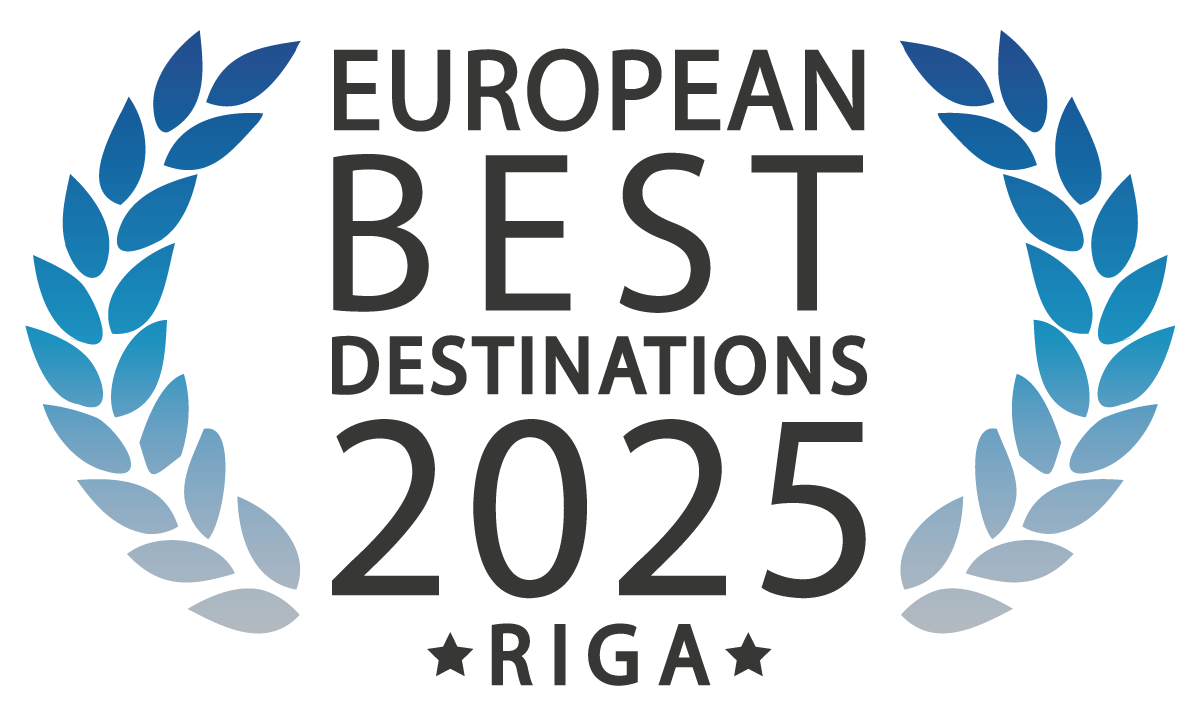Riga Investment and Tourism Agency has released the city of Riga's annual economic profile, which summarises the most relevant and up-to-date information for entrepreneurs, existing and potential investors, as well as residents of the capital's economic growth and development, investment projects and business development segments, business, transport and tourism, and other sectors.
As illustrated in the Economic Profile in figures and data, the Covid-19 epidemic has had a substantial impact on the economy, investment, real estate development, tourism, and other global and local sectors and businesses in recent years. Several big projects are planned in the capital of Latvia in the coming years with the goal of developing and favourably influencing Riga's economy and business.
People
Riga is a Baltic metropolis with a population of about one million people in the city and its surrounding areas. In 2021, the city of Riga had a total population of 614,618 from 621,120 in 2020. The average Riga resident is 42 years old, with a monthly salary of 1,394 euros. The capital is home to 47.5% of Latvians, 35.8% of Russians, 3.6% of Belarusians, 3.4% of Ukrainians, and 1.7% of Poles. 95% of Rigans can communicate in at least one foreign language, and 54 percent can communicate in at least two. Higher education is held by 38.7% of Riga citizens, while secondary education is held by 37.1%. There are also numerous educational options, as indicated by the increasing number of international students each year. In 2020, 78,548 people attended universities and colleges in the capital and Latvia, with 9,371 international students accounting for 12% of all students. The majority of students (21%) are between the ages of 29 and 39.
Finance
Latvia is a member of many reputable international organisations, ensuring the free flow of goods, services, capital, and labour, as well as the security of foreign investment in Riga and throughout Latvia. The Latvian economy and business are dominated by the capital. 76.3% of all economically active companies in Latvia operating in Riga. Services (179,091 employees), wholesale and retail trade (85,618 employees are the most popular business sectors in the capital in terms of employee numbers. The most popular investment sectors were finance and insurance (24.3%), real estate (16.5%) and wholesale and retail trade (14.8%). The largest financial companies in Riga are SEB, Swedbank, DNB Bank.
Riga employs 305,400 individuals, or 34.2% of all employed persons in Latvia, but it also houses 274,496 people or 23.6% of all economically active people. The average monthly wage of the working population in Riga (in gross / Euro) is: Administrative and support services - 1937 €, Information and communication services - 1866 €, Electricity, gas, steam, and air conditioning supply - 1413 €, Health and social work services - 1211 €, Education - 913 €, and Accommodation and food services - 726 €
Future
Riga will be established as the primary transport hub of the Baltics in the near future, with several significant projects being developed in the city, providing huge development potential in the heart of Riga. Significant investment and real estate development projects aim to make the capital even more appealing to investors, international corporations, digital nomads, international students, visitors, and locals.
Rail Baltica, which envisions the construction of a new European standard gauge railway line in the Baltic States, is one of the major projects. The project's goal is to connect Helsinki, Tallinn, Pärnu, Riga, Panevezys, Kaunas, Vilnius, and Warsaw to the European railway network. Rail Baltica is expected to cost 5.8 billion euros and generate 36,000 new jobs.
Important projects that are already under development:
- Rail Baltica, which envisions the construction of a new European standard gauge railway line in the Baltic States, is one of the major projects. The project's goal is to connect Helsinki, Tallinn, Pärnu, Riga, Panevezys, Kaunas, Vilnius, and Warsaw to the European railway network. Rail Baltica is expected to cost 5.8 billion euros and generate 36,000 new jobs.
- The construction of the Eastern Highway of Riga, which is intended to provide opportunities for the center to pass off and relieve the historic center of Riga and the Purvciems neighbourhood from freight transport, is the most ambitious road infrastructure project in Riga in recent years, with a total cost of EUR 37.8 million.
- Preses nama quarter. A Class A office building, a multifunctional center, and a 4-star hotel will be developed as part of the project's first phase. The 26,500-square-meter Class A office building will include retail, sports and medical facilities, a big dining space, three levels of above-ground parking, and the Baltics' first rooftop football pitch.
- Pardaugava's "Knowledge Mile" is an innovation and science infrastructure. Student campuses will be built as part of the project, creating an area where science, study, business, and the real estate market can flourish. The "Knowledge Mile" will comprise Riga's largest universities, as well as its branches or dorms, and the H2O Architecture and Media Center 6.
- The city centre neighbourhood is being developed with the goal of attracting international investments by developing modern office spaces. The following facilities have either been constructed or are scheduled to be finished soon: ORIGO ONE, which was built with the help of Linstow Baltic's 70 million euro investment and is one of the newest and most modern Class A office space projects; By June 2023, the NOVIRA PLAZA four-building complex will be finished. More than 55 million euros have been invested in the project; KIMMEL QUARTER The Swedish real estate developer's Eastnine project will be designed as a complex of offices, shops and services, as well as a convenient gathering place in the city centre; THE PINE is expected to be completed in 2022-2023. It will be the Baltics' first wooden office building, as well as a zero-emission or climate-neutral building covering 19,900 m2.
The full version of the 2022 Riga City Economic Profile is available here: https://ej.uz/EkonomikasProfils2022
Ance Tarvida
Senior Project Manager
Investment and Tourism agency of Riga
ance.tarvida@riga.lv
+371 20 097 656

